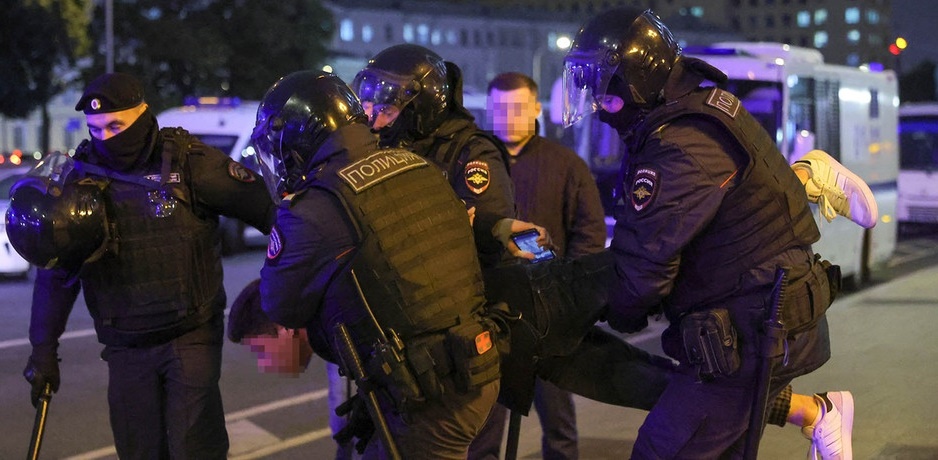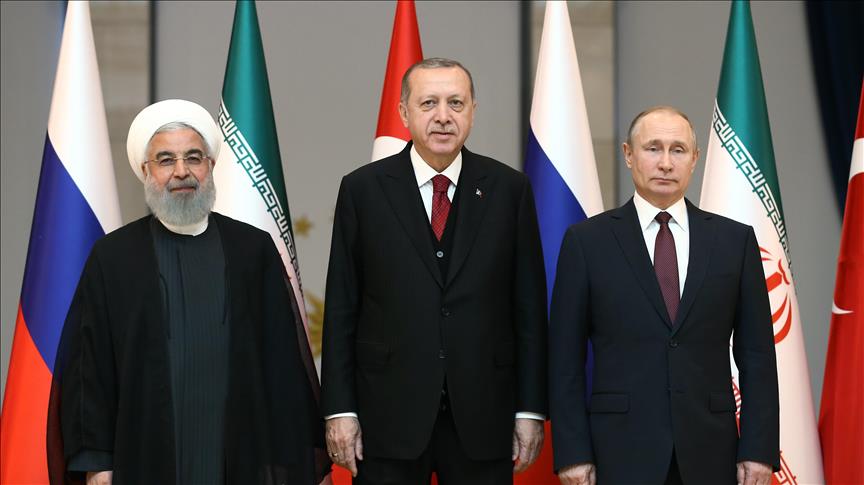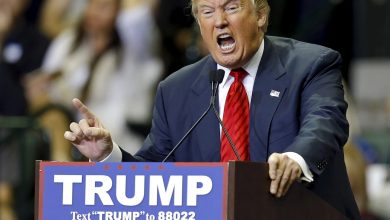
Authorities had forbidden it – but people in more than 35 Russian cities took to the streets against the planned partial mobilization. / Russia partial mobilization news
According to civil rights activists, hundreds have been arrested – and the numbers are rising every hour.
Hundreds of people have been arrested in Russia during demonstrations against the partial mobilization ordered by Kremlin chief Vladimir Putin. The Russian human rights organization OVD-Info, which among other things provides legal support for the politically persecuted, reports on demonstrations in more than 35 cities.
The number of arrests reported by OVD-Info has increased steadily over the past few hours. Recent reports speak of more than 1050. Reporters from international news agencies who are on site also report arrests in the country’s two largest cities – Moscow and St. Petersburg.
That’s where the biggest rallies took place. In Moscow, people chanted “Russia without Putin”. In Tomsk and Irkutsk in Siberia, in Yekaterinburg in the Urals and in other places, isolated people took to the streets.
In a televised speech on Wednesday morning, President Putin ordered the partial mobilization of Russia’s armed forces. A total of 300,000 reservists are to be drafted to fight against Ukraine. The background is likely to be Russia’s personnel difficulties in the war of aggression that began on February 24.
Russia partial mobilization: He was threatened with up to 15 years in prison
It is difficult to say to what extent the protests will grow – also in view of the massive state repression in Russia. In Moscow, for example, the authorities warned against participation even before the start of a planned demonstration: the public prosecutor threatened people with up to 15 years in prison.
Since the start of the war against Ukraine almost seven months ago, the Russian government has been taking tough action against members of the opposition and opponents of the war, including stricter laws. Courts imposed fines and imprisonment for so-called discrediting of the Russian armed forces.
Visa issue: Entry for Russians will be more difficult
Russia Ukraine War: Russia pulls back from some zones
Russia partial mobilization: what follows from Putin’s speech
With his speech on partial mobilization in Russia, President Putin awakened bleak memories of his speeches at the beginning of the war. But what does this announcement mean for the Russians? And how could it influence the course of the war?
What did Putin announce in his TV speech?
At an unusual time of day for a presidential televised address, Russian President Vladimir Putin has warned citizens that the war against Ukraine is now much closer to everyday life. At 9:00 a.m. local time, Putin announced a partial mobilization in the Russian Federation. At the same time, he again raised accusations against the states of the West, whose goal it was to “weaken, split and ultimately destroy” Russia. As at the beginning of the war, Putin threatened the NATO countries, barely covertly, with the use of nuclear weapons. Russia will “use all the means at our disposal” for defense – that is “not a bluff”.
Who does partial mobilization affect?
Putin stressed that only citizens who were in the reserve would be called up, especially those who had served in the armed forces and then signed a contract as a reserve officer and had “certain military expertise and relevant experience”. Defense Minister Sergei Shoigu then declared that neither students nor conscripts would be drafted. The minister spoke of a total of up to 300,000 reservists, but pointed out that there are up to 25 million reservists in Russia. One decree speaks of the conscription of “citizens” of the Russian Federation – this would give the army much more far-reaching opportunities.
Why no mobilization?
The suspicion that, in view of the course of the war, Putin will order a general mobilization in order to fully exploit the numerical superiority of the Russian army, has been repeated over the past few months. Putin is likely to shy away from this for a number of reasons. For one thing, he would have to change his account of the campaign. So far he has referred to it as a military special operation; a formulation that sounds like manageable and manageable use. The term “war” for the attack on Ukraine is even a punishable offense in Russia. Putin would have to move away from this in the event of a general mobilization – in the eyes of his supporters, a presumably serious blow to his credibility.
In the event of a general mobilization, millions of Russians would also have to reckon with being included and sent to the front. This would give the war a completely different place in the everyday life of many Russian families. Because up to now, it has mainly been professional and regular soldiers who have been sent to war and young men recruited in poorer areas of Russia, and recently also increasingly prisoners.
In order to counter these fears, Putin emphasized the term “partial mobilization” twice in his speech – presumably so that it was clear to everyone what this decision should not be.
On the other hand, Putin accommodated the ultranationalists. Especially after the recent successes of the Ukrainian army, they had increasingly loudly criticized the conduct of the war – and called for general mobilization. An awkward situation arose for Putin as commander-in-chief of the armed forces, since for the first time his leadership was openly criticized from his camp, even if he was not named personally. He now met that.
Will the new soldiers be sent directly to the front?
It may take a while before the soldiers who are now to be recruited are sent into combat. On the one hand, they should first receive training – it is unclear how long this will take. If they are brought quickly to the Ukraine, they are likely to be poorly trained and thus hardly make up for the deficits of the Russian army. But it is also conceivable that the Russian army is already looking towards the end of the winter of 22/23 and then wants to send the soldiers – who have had correspondingly longer training – on a new offensive. Deploying more soldiers also requires more equipment. A statement by Putin may indicate deficits here. In his speech, he repeated an order from the previous day to increase arms production.
Russia partial mobilization: How threatening is the move for Ukraine?
That also depends initially on how quickly the Russian recruits take part in the fight, how qualified they are and what their morale is like. It is undisputed that the Ukrainian army is still inferior to the Russian army in terms of numbers and has suffered considerable losses – presumably also during the most recent offensives. At the end of August, she had put the death toll in her own ranks at almost 9,000 soldiers. Russia, on the other hand, speaks of around 60,000 fallen Ukrainian soldiers. The numbers cannot be independently verified. However, the Ukrainian army was able to make up for the disadvantage with a great will to fight, tactical skill, arms deliveries and intelligence information from Western countries. The partial mobilization should therefore fuel the debate about further western support for the Ukrainian army.
Can the war also escalate as a result of the “referendums”?
The “referendums” in four Russian-occupied areas offer additional potential for escalation. After all, there is no doubt that a majority will then be announced in favor of joining the Russian Federation – along the lines of the annexation of Crimea in 2014. This means that Russia can then present any attempt by Ukraine to reconquer the areas as an attack on its own territory. And this is where Putin’s aforementioned threat to defend Russia by all means comes into play. The addition “if necessary also with nuclear weapons” can and should be thought of by everyone. On the other hand, Ukrainian President Volodymyr Zelenskyy has promised to recapture all areas occupied by Russia. And the West’s categorical refusal to recognize such annexations.
How specific are Putin’s threats?
That remains uncertain – and should probably be so. Right from the start of the war, Putin relied on extreme threats and intimidation, and deceit and lies have been part of his repertoire for years. The suggestion that Russia could also use nuclear weapons in Ukraine terrified many people in Europe, especially in the first days of the war. On the other hand, Putin has repeatedly spoken out officially against the use of such weapons and at least stated that he is aware of the consequences. As recently as August, he wrote in a letter to the UN that in a nuclear war there can only be losers – such a war should never be started. But that, too, is ultimately open to interpretation.
Russia partial mobilization:


